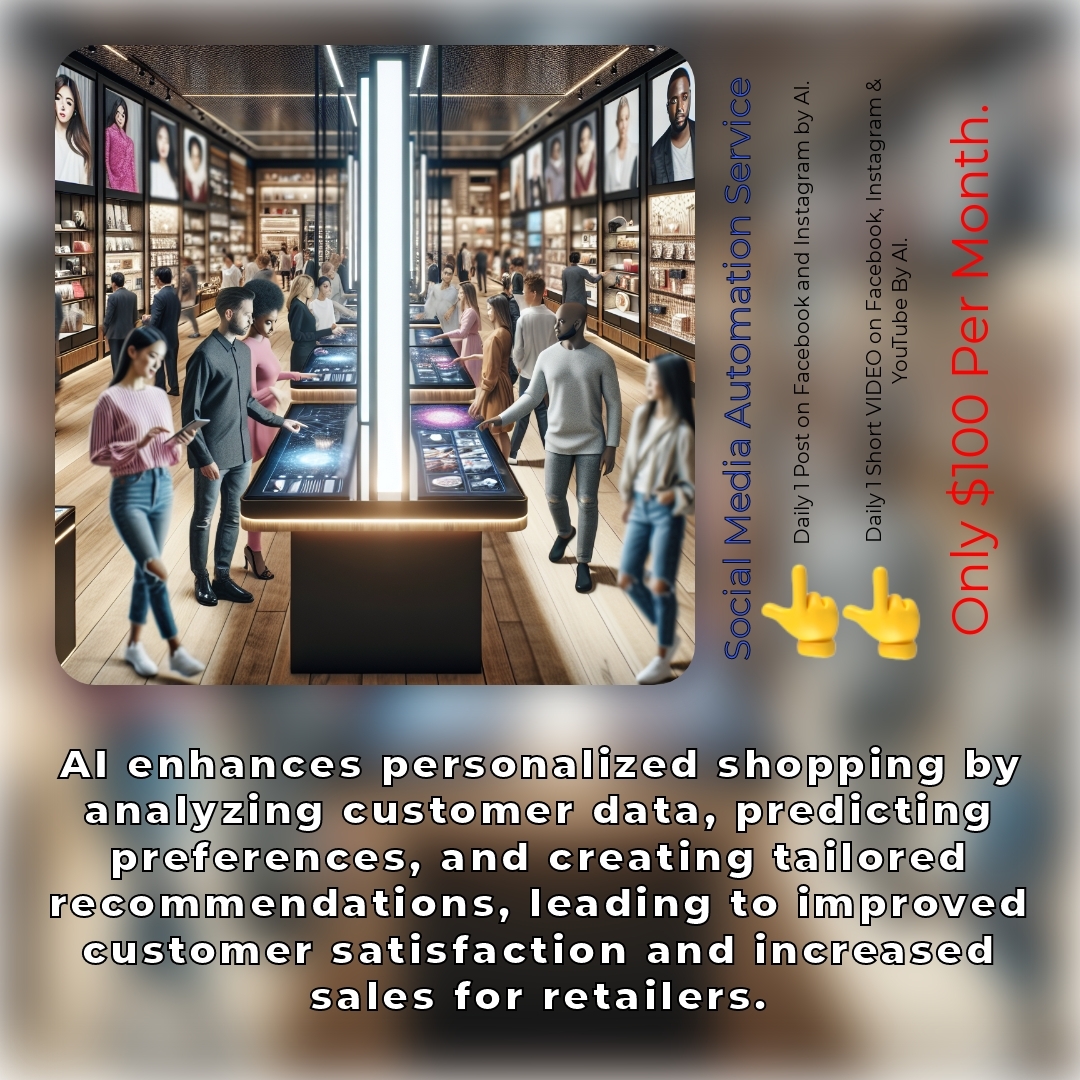Personalized shopping experiences are essential in today’s retail landscape, transforming how consumers interact with brands. Integrating AI in retail not only enriches these interactions but also drives customer satisfaction and engagement. This article explores how AI technologies can shape personalized shopping experiences, ultimately enhancing customer relationships and loyalty.
“Personalization transforms shopping into a journey of individual joy.”

Understanding Personalized Shopping Experiences
Personalized shopping experiences are all about tailoring the shopping journey to fit individual customer preferences and behaviors. This means understanding what customers want and delivering it in a way that feels unique to them. By analyzing consumer behavior, retailers can create a shopping atmosphere that resonates deeply with their audience. Consumer behavior refers to how buyers make decisions and interact with brands. When businesses tap into this understanding, they can significantly enhance their e-commerce strategies.
Key elements that contribute to personalized shopping experiences include product recommendations, customized offers, and personalized communications. These aspects make shoppers feel valued and understood, leading to increased customer loyalty and satisfaction. By leveraging data, retailers can create meaningful interactions that keep customers coming back.
The Role of AI in Retail
AI in retail is revolutionizing the way brands connect with their customers. With AI tools, retailers can analyze vast amounts of data quickly and accurately, leading to insights that were previously hard to obtain. For example, a study found that businesses using AI technologies saw up to a 20% increase in sales. This demonstrates the transformative power of AI in crafting personalized shopping experiences.
One of the standout innovations in this realm is AI shopping assistants. These virtual helpers employ algorithms to understand customer preferences and shopping habits. For instance, brands like Amazon and Sephora have implemented AI shopping assistants that provide tailored product recommendations based on past purchases and browsing behavior. This level of personalization improves customer satisfaction and drives sales.
Leveraging Machine Learning for Shopping Recommendations
Machine learning plays a crucial role in providing personalized shopping suggestions. It involves the use of algorithms that learn from data patterns and consumer behavior. By analyzing factors like previous purchases, search history, and product ratings, machine learning can offer recommendations that feel truly customized.
Benefits of using AI for customized shopping experiences include:
- Enhanced customer satisfaction
- Increased sales and conversion rates
- Better customer loyalty
- Reduced cart abandonment rates
This means that not only do customers feel more engaged, but businesses also benefit from heightened profitability.
Implementing AI for Better Customer Engagement in E-commerce
To successfully implement AI technologies, businesses need to adopt data-driven marketing strategies that enhance customer interactions. This means using data analytics to gain insights into consumer behavior and preferences. Successful e-commerce platforms like Netflix and Spotify show how effective personalized experiences can drive user engagement and satisfaction.
AI can enhance customer experience through proactive engagement strategies, such as chatbots and personalized email marketing. Chatbots can answer customer inquiries in real-time, making shopping easier and faster. Additionally, personalized email campaigns, which recommend products based on past interactions, create a sense of connection and tailored service.
Future Trends in Personalized Shopping Experiences
The future of AI in retail looks promising, with many predicting even deeper integration of AI tools in e-commerce platforms. As consumer preferences evolve, businesses must stay ahead by adopting advanced AI analytics to continually shape their shopping experiences. For example, emerging technologies like augmented reality may soon offer customers even more personalized interactions while browsing online.
In a digital shopping world, keeping up with trends is crucial. Businesses that invest in AI solutions today will be better positioned to meet tomorrow’s customer expectations, ensuring they remain competitive and relevant.
Conclusion
AI has a transformative impact on personalized shopping experiences. By utilizing AI technologies, retailers can create engaging and meaningful interactions that boost customer satisfaction and loyalty. As we look ahead, the ongoing investment in AI tools and strategies will reveal even more opportunities for enhancing personalized shopping experiences. The potential is vast, and the future of retail is all about truly understanding and catering to the individual needs of each customer.
What are personalized shopping experiences?
Personalized shopping experiences tailor the shopping journey to match individual customer preferences and behaviors. It focuses on understanding what customers want and delivering a unique experience.
How does consumer behavior affect shopping experiences?
Consumer behavior refers to how buyers make decisions and interact with brands. By analyzing this behavior, retailers can create a shopping atmosphere that resonates with their audience, enhancing e-commerce strategies.
What key elements contribute to personalized shopping?
- Product recommendations
- Customized offers
- Personalized communications
How does AI influence personalized shopping?
AI in retail helps brands connect with customers by analyzing vast amounts of data. This leads to insights that can significantly boost sales and improve the shopping experience.
What are AI shopping assistants?
AI shopping assistants are virtual helpers that use algorithms to understand customer preferences and shopping habits. They provide tailored product recommendations based on past purchases and browsing behavior.
How does machine learning enhance shopping recommendations?
Machine learning utilizes algorithms that learn from consumer data patterns. It analyzes previous purchases, search history, and product ratings to recommend products that feel customized.
What are the benefits of using AI for shopping personalization?
- Enhanced customer satisfaction
- Increased sales and conversion rates
- Better customer loyalty
- Reduced cart abandonment rates
How can businesses implement AI for better customer engagement?
Businesses can adopt data-driven marketing strategies that use data analytics to gain insights into consumer behavior. Strategies include chatbots and personalized email marketing to enhance customer interactions.
What future trends are expected in personalized shopping?
AI in retail is expected to deepen its integration into e-commerce platforms. Emerging technologies like augmented reality may provide even more personalized interactions in the future.









